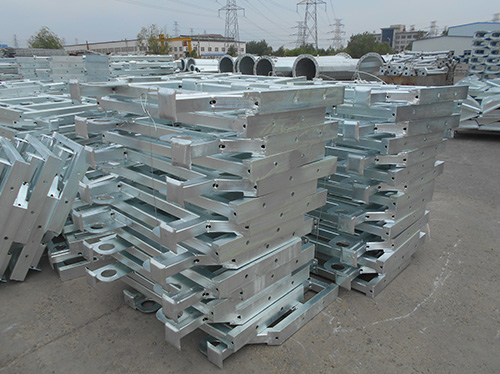
Anshan yongfeng hot galvanizing co. LTD
Marketing: 15040762557
Customer service hotline: 0412-848267
Company email: 1123927151@qq.com
Company website: m.xwors.cn
Company address: anqi road 34, dadao bend industrial park, anshan city
Hot dip galvanizing is one of the most effective means to delay the environmental corrosion of iron and steel materials. It is a zinc alloy coating with good adhesion on the surface of iron and steel products through the reaction and diffusion of iron and zinc. Compared with other metal protective methods, the hot dip galvanizing process has incomparable advantages in the protective characteristics of the combination of physical barrier and electrochemical protection of the coating, the bonding strength of the coating and substrate, the density, durability, maintainability and economy of the coating and its adaptability to product shape and size. At present, hot dip galvanizing products mainly include steel plate, steel strip, steel wire and steel pipe, among which hot dip galvanized steel sheet takes the largest proportion. For a long time, hot dip galvanizing technology has been favored by people due to its low cost of plating, excellent protection characteristics and beautiful appearance, which is widely used in the fields of automobile, construction, household appliances, chemical industry, machinery, petroleum, metallurgy, light industry, transportation, electricity, aviation and Marine engineering.
Hot galvanizing is a kind of alloy layer produced by the reaction of molten metal and iron substrate. Hot galvanizing is a process of pickling iron and steel parts, in order to remove iron oxide on the surface of iron and steel parts. After pickling, it is cleaned through ammonium chloride or zinc chloride aqueous solution or mixed water solution of ammonium chloride and zinc chloride, and then sent to the hot dip bath. Hot galvanizing has the advantages of uniform coating, strong adhesion and long service life.
The most widely used steel materials in industry are corroded to varying degrees when used in the atmosphere, seawater, soil and building materials. According to statistics, approximately one third of the world's total production of steel is lost to corrosion each year. In order to guarantee the normal use of steel products and extend their service life, the anti-corrosion protection technology of steel has been widely paid attention to.
